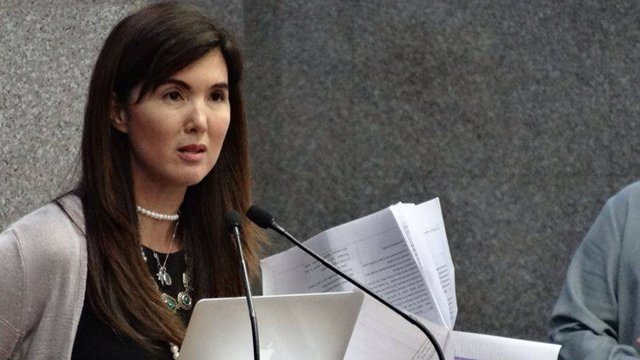SUMMARY
This is AI generated summarization, which may have errors. For context, always refer to the full article.

MANILA, Philippines – A year into the implementation of the sin tax law, are tobacco farmers and government health programs benefitting from the collections?
Senator Pia Cayetano called on Congress to review the status of the law, citing what she called “clear delays and violations.” Senator Ferdinand “Bongbong” Marcos Jr also urged the government to ensure that tobacco farmers benefit from the law.
A proponent of the law, Cayetano filed a resolution calling on the Congressional Oversight Committee on the Sin Tax law to investigate whether or not the landmark law met its objectives. The sin tax law is touted as a health and revenue measure.
“Until now, there are no rules and regulations governing the earmarking of funds from incremental revenues. And as such, these funds have not been released to the concerned agencies. These are clear delays and violations of the law,” Cayetano said in a statement on Monday, January 13.
The senator said the Department of Budget and Management (DBM), Bureau of Internal Revenue (BIR), and the Department of Finance (DOF) owed Congress and the public an explanation on where billions in sin tax collections are going.
Cayetano cited data from the BIR showing that the agency’s sin tax collections increased 81.5% in the first 11 months of 2013 compared to 2012 figures. Yet the senator said this is only “one-half of the picture.”
“What we would like to see is the other half: How much of these billions in incremental revenues were earmarked and actually allocated for universal health care, government health programs, and to promote economically viable alternatives for tobacco farmers and workers? All of these are mandated by the law,” she said.
Cayetano said the law mandates that 15% of revenues from excise taxes on tobacco products be used for programs promoting alternatives for tobacco farmers and workers in tobacco-producing provinces.
The law also requires that 80% of the remaining revenues be allocated for the universal health care program under the National Health Insurance Program, and 20% for medical assistance and health enhancement facilities program.
Cayetano quoted health officials as saying during Senate budget hearings in November 2013 that they were not aware of any fund released to their department sourced from sin tax revenues.
“There is an urgency for Congress to undertake this review to ensure that the twin goals of the law are being observed and complied with, namely, to enhance government’s tax collections from alcohol and tobacco products, and to allocate substantial funds from sin tax revenues for public health programs,” she said.
In a separate statement Monday, Marcos echoed Cayetano’s call. A staunch critic of the law, Marcos hails from the tobacco-producing province of Ilocos Norte.
“It’s very clear in the law that tobacco farmers should receive a certain percentage from the revenues out of the excise tax collection from tobacco products. If the law is very clear on that, the government should make sure that the farmers will get their entitlement,” Marcos said.
President Benigno Aquino III signed the Sin Tax Reform Act in December 2012, the first time in 16 years that a measure to restructure the excise tax system became law. It took effect on January 1, 2013.
The law imposes higher taxes on tobacco and alcohol products, overcoming a strong industry lobby that kept prices in the Philippines among the cheapest in the world.
Is it effective in curbing smoking?
Cayetano said Congress must also determine whether or not the law is effective in curbing excessing smoking and drinking habits among Filipinos, especially the youth.
“One year after we struggled and succeeded in the passage of the Sin Tax Reform Act, have our people started to benefit from higher sin tax collections as this landmark law had envisioned?”
Last December, Health Secretary Enrique Ona said it was still too early to determine the public health impact of the sin tax law, and whether or not it will translate to a significant increase in funding his department’s programs.
Ona said the law’s success will be realized not just when smokers are encouraged to quit but also when it is able to prevent the youth from starting the habit.
As for the BIR, Commissioner Kim Henares said the government already exceeded its revenue collection target for 2013 from January to November.
A total of P91.6 billion was generated from sin taxes for the first 11 months of 2013, exceeding the full year collection target of P85.86 billion, the BIR chief said.
Civil society groups agreed with Ona in saying that it is still too early to gauge the effectiveness of the law.
“[The death of the smoking industry] can possibly happen, but it will take several years … But this will not actually happen in our lifetime. We would be gone by then, but we won’t see zero prevalence of cigarette smoking in the country. It will take a long, long time,” said Maricar Limpin of the Framework Convention on Tobacco Control Alliance, Philippines. – Rappler.com
Add a comment
How does this make you feel?
There are no comments yet. Add your comment to start the conversation.